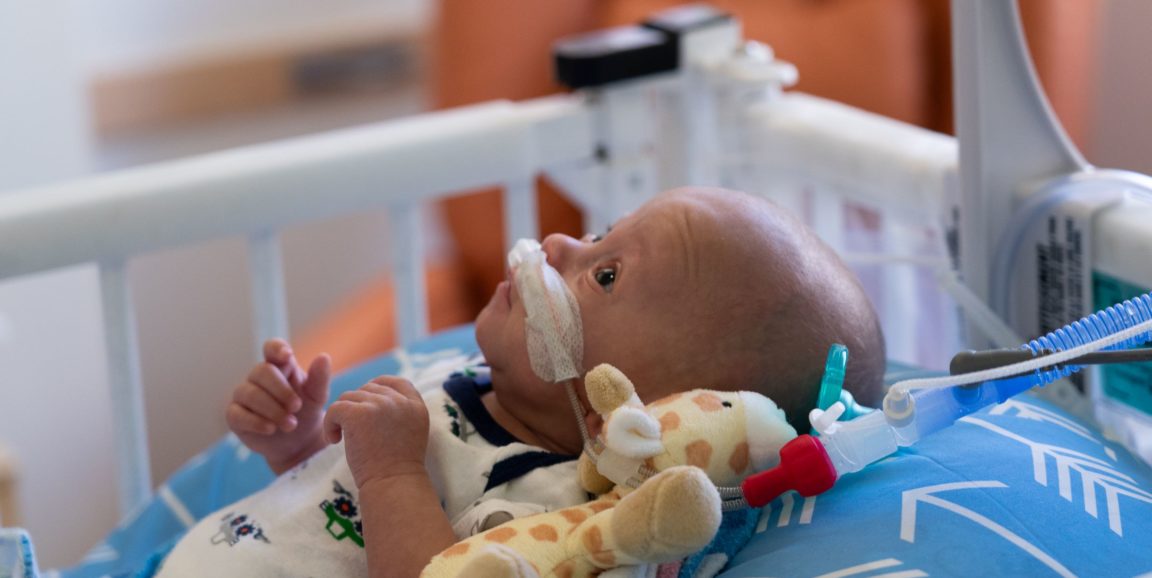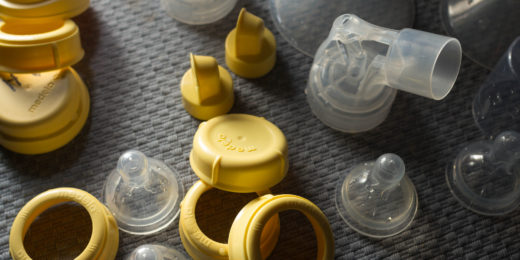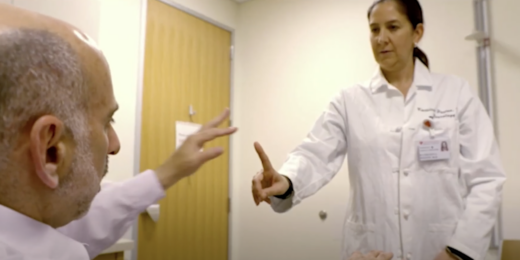When Haven Smith was born on New Year's Day 2019, there were no guarantees he would survive. Haven arrived more than three months early, weighing less than a pound. He's still the smallest baby to be born at Lucile Packard Children's Hospital Stanford so far this year.
Babies born so tiny and early are known as micro-preemies. They face daunting obstacles. Among the biggest is the fact that their lungs, the last major organ to develop before birth, don't function very well.
But Haven was fortunate, a new story from Packard Children's explains. The hospital's neonatology team, for decades a leader in supporting the tiniest babies, used all their expertise to help Haven breathe. Before Haven was born, his mom, Amanda Smith, received steroids to help his lungs mature. And after his birth, the team used techniques they developed to support his very fragile lungs:
Packard Children's Small Baby Unit, also known as the Nest, has developed specialized ventilator protocols to gently assist the breathing of micro-preemies to promote a gentle approach and minimize later breathing complications. This approach allowed Haven to finally breathe without ventilator support at six weeks of age and just over 2 pounds (1,030 grams). However, growth-restricted babies [like Haven] are also at risk for developing later lung complications. The Packard Children's Cardiac and Respiratory Care for Infants with BPD (CRIB) Program Care Team was established to address complications of prematurity. The CRIB team watches Haven closely to monitor his chronic lung disease and pulmonary hypertension.
The team's hard work is paying off. Now six months old, Haven is grinning and babbling, and has collected a long list of affectionate nicknames from his mom, his grandparents, and his many caregivers in the neonatal intensive care unit. His mom explained how grateful she feels:
'If we weren't here at Packard Children's, I would have lost him several times over. Moms with high-risk pregnancies need to be here. The elevated level of care is not just in the big saves, but also in the small details. I can never repay the doctors and nurses for what they've done for us,' Amanda says.
Photo of Haven courtesy of Lucile Packard Children's Hospital Stanford






